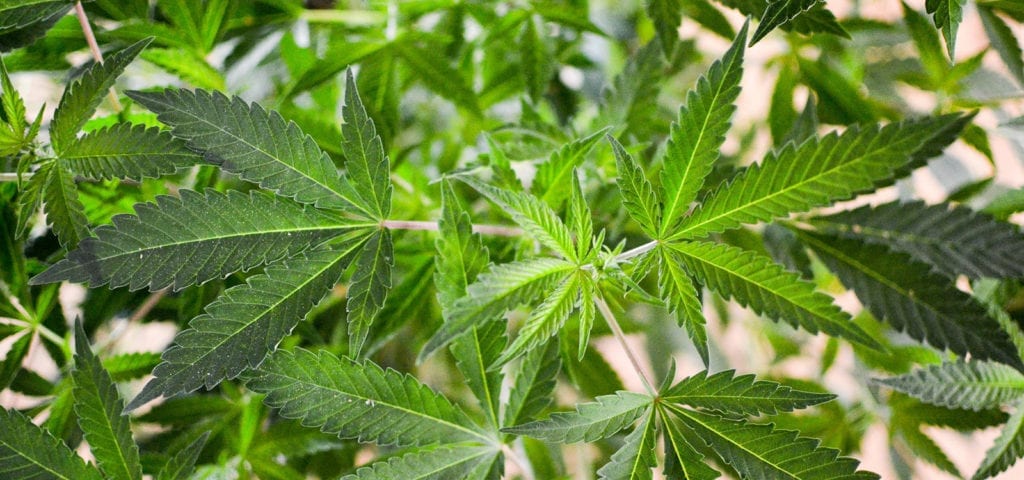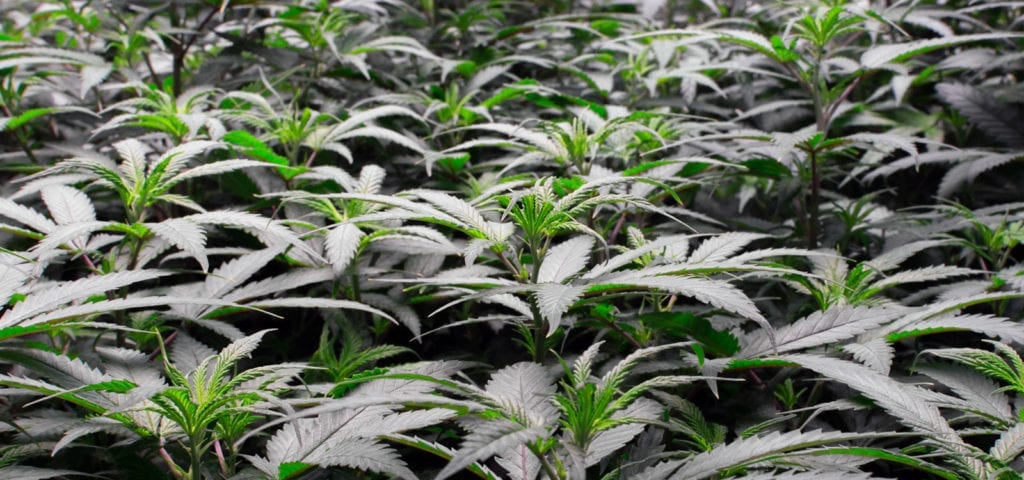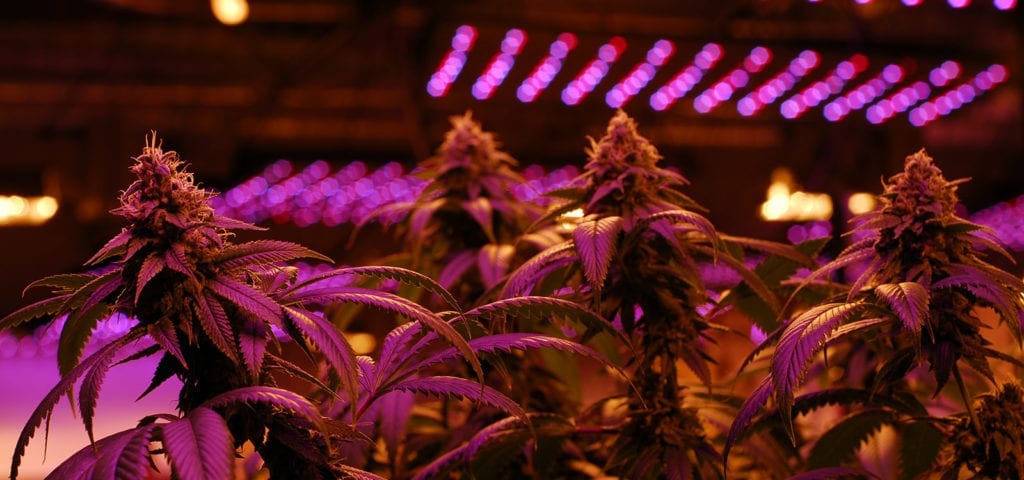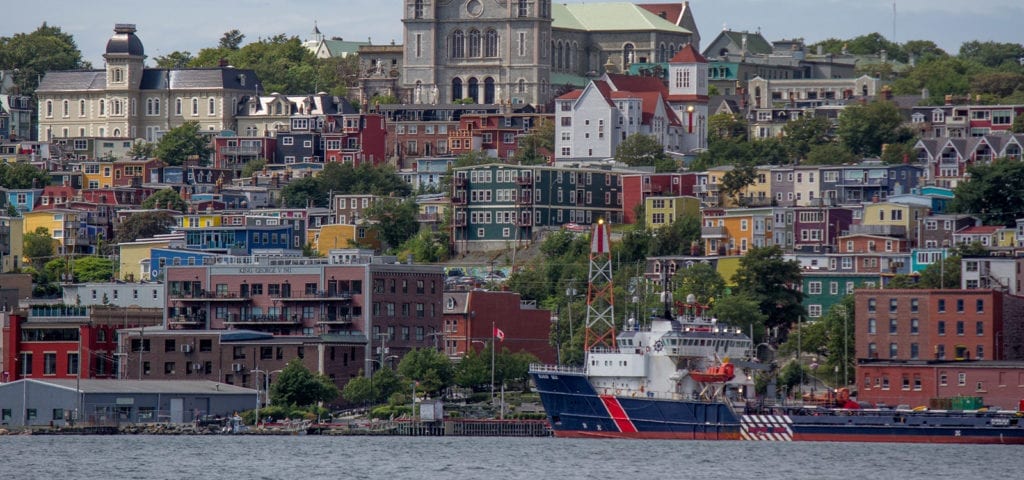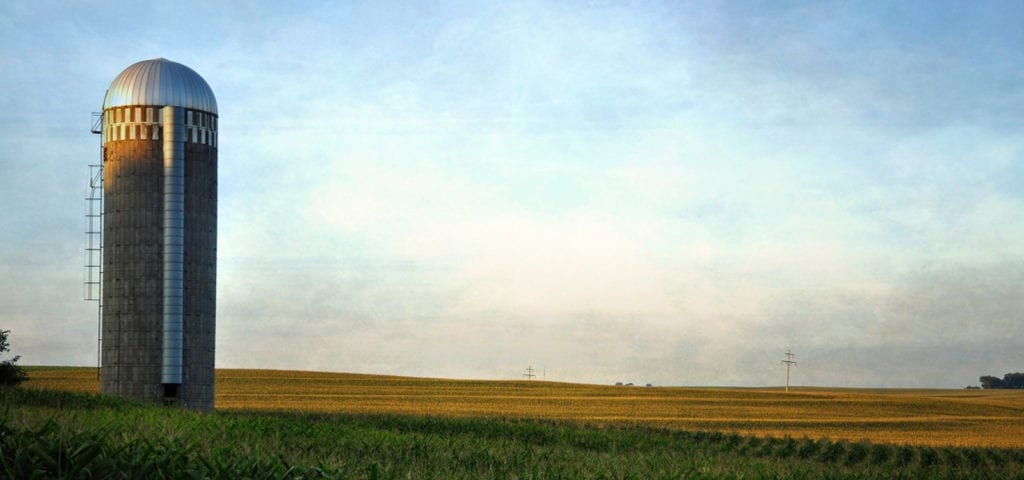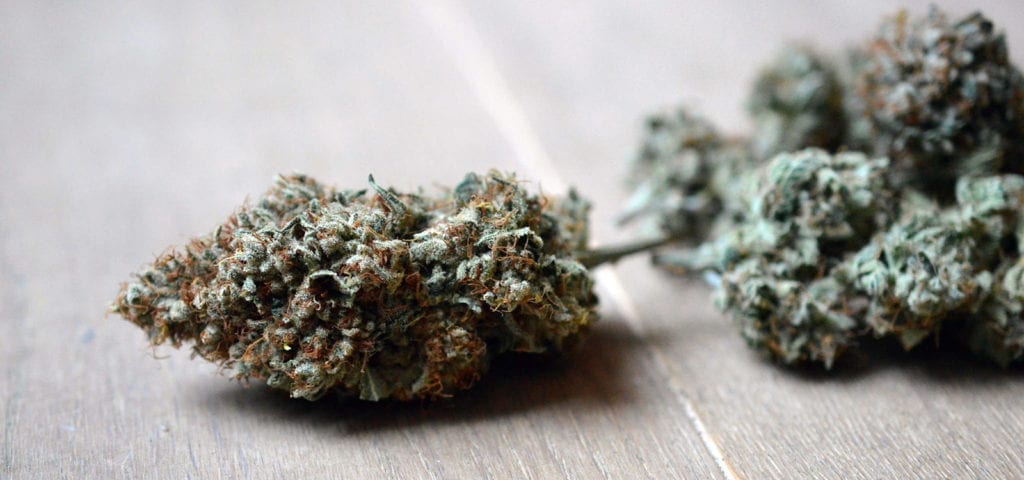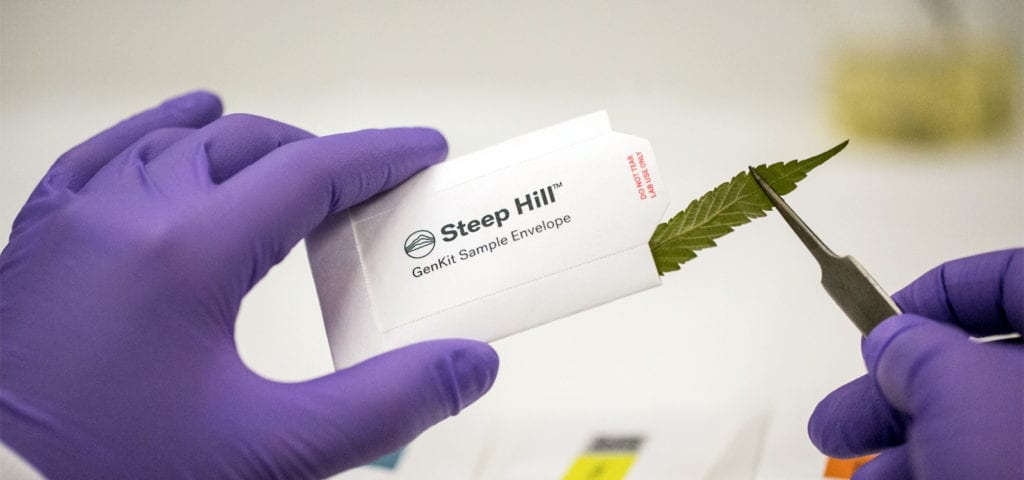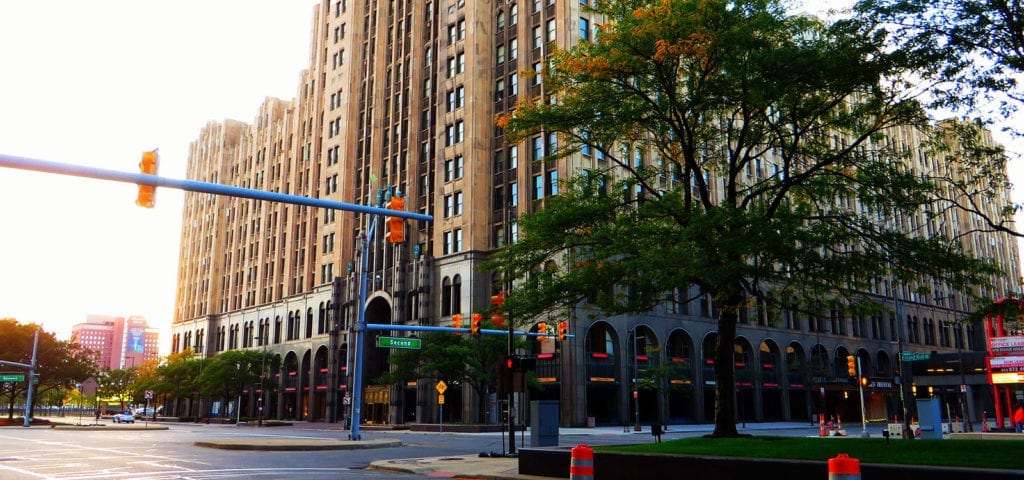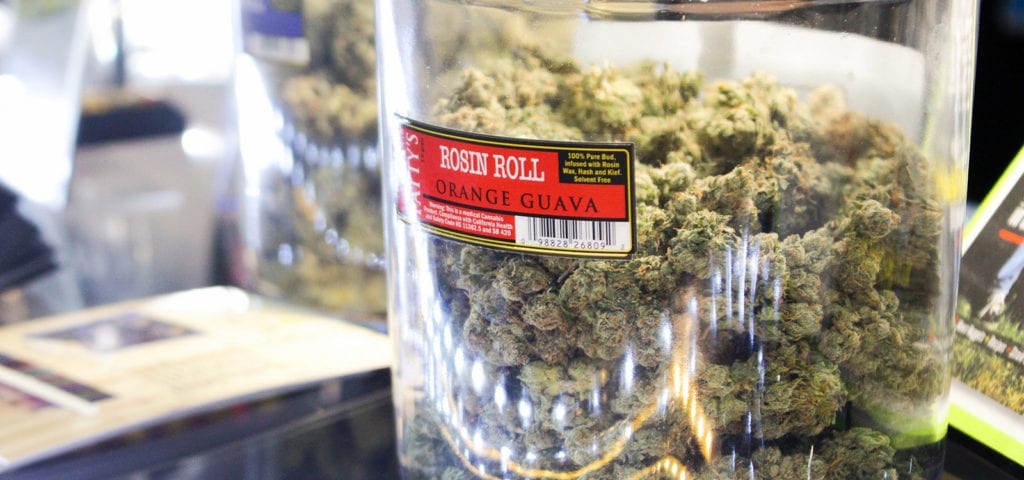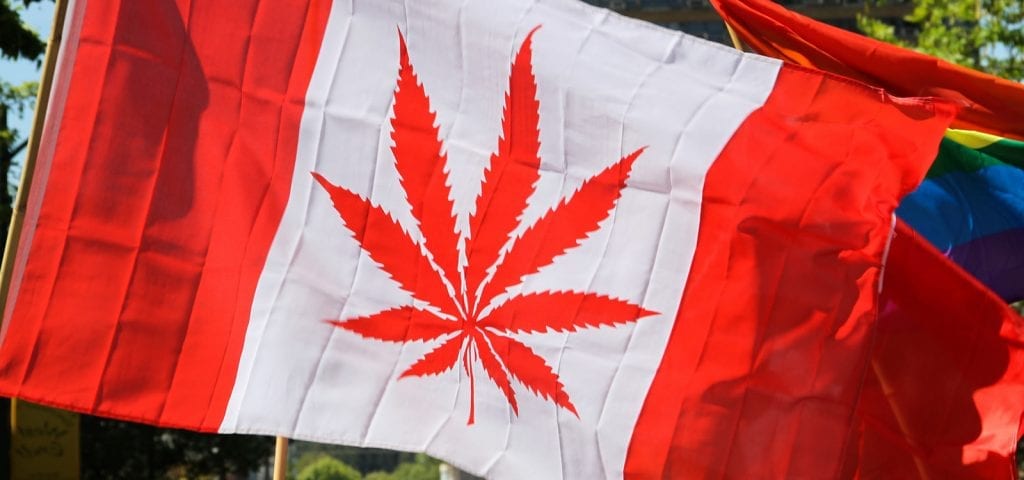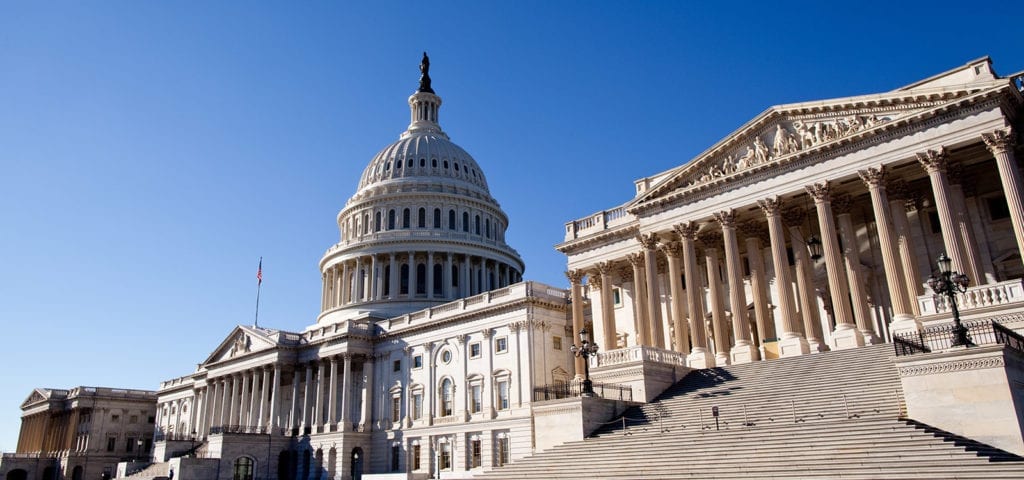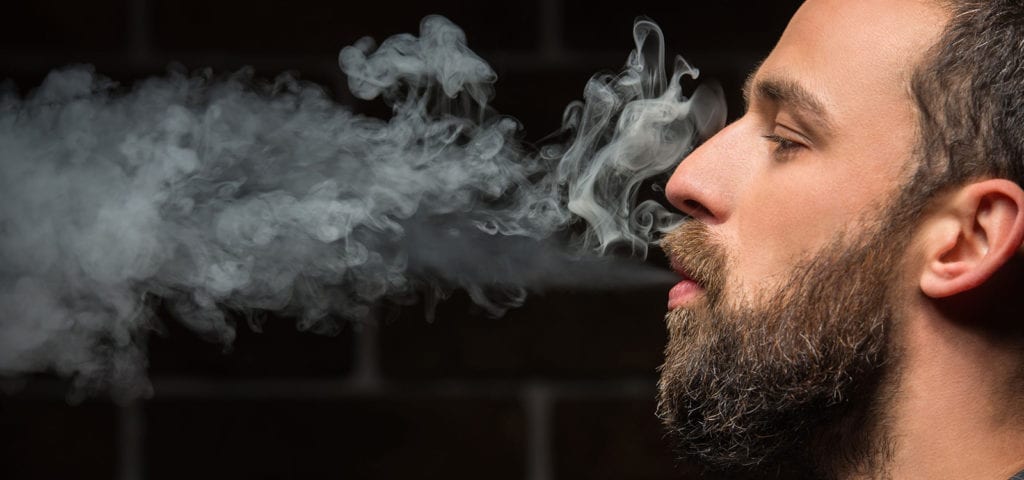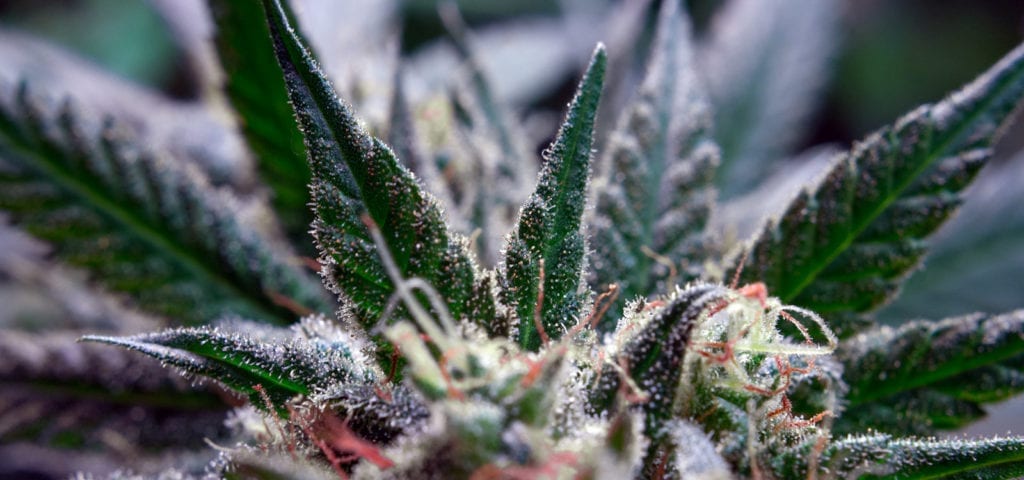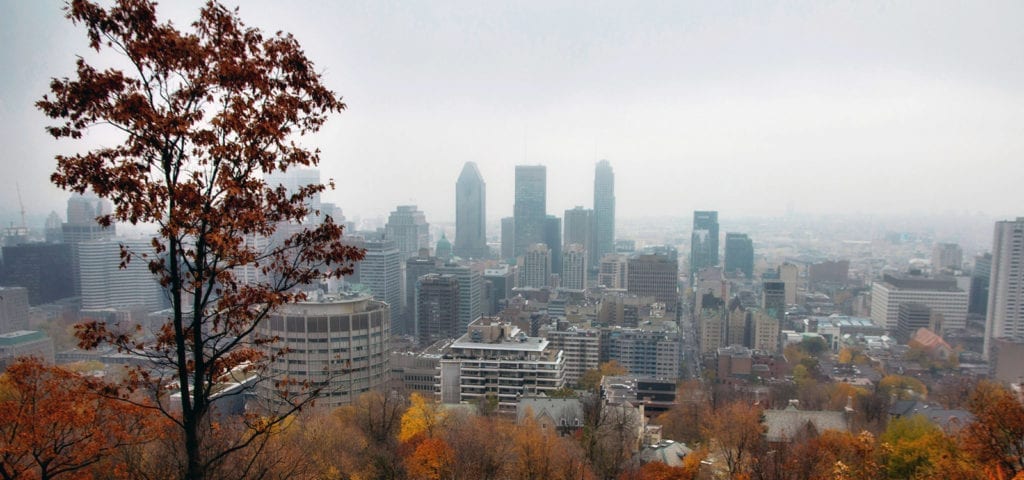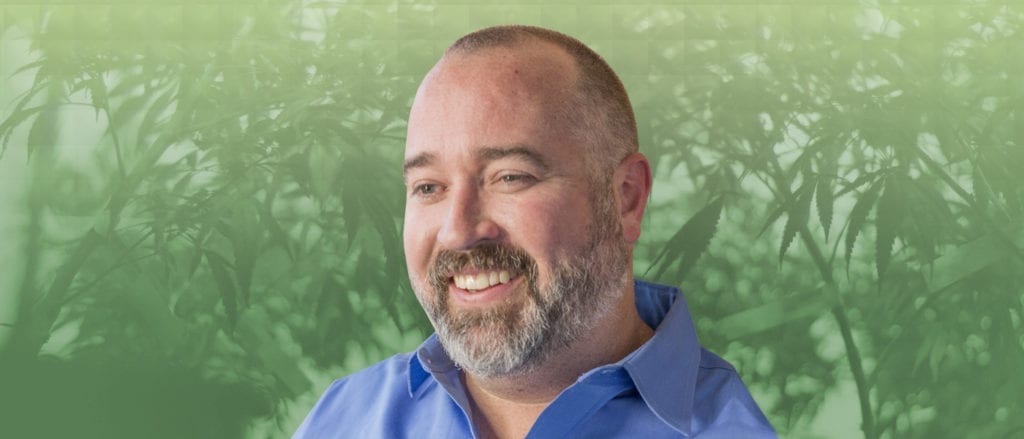Brian Applegarth is the CEO and founder of Emerald Country Tours, founder of the Cannabis Trail, and founder of the California Cannabis Tourism Association.
California is the country’s most recently legalized state and — as the birthplace of medical cannabis in the United States — it is steeped in cannabis history, culture, and heritage. Brian recently joined our podcast host TG Branfalt to talk about how his company captures and shares the experience of California cannabis with visitors to the region, how the state’s cannabis tourism industry has evolved with the medical and now adult-use markets, what kinds of experiences tourists should look for and expect when exploring the cannabis industry, the future of cannabis tourism, and more!
You can listen to the interview below or keep scrolling down to read a full transcript of this week’s Ganjapreneur.com podcast episode.
Listen to the podcast:
Read the trancsript:
TG Branfalt: Hey there, I’m your host TG Branfalt and you are listening to the Ganjapreneur.com podcast where we try to bring you actionable information and normalize cannabis through the stories of ganjapreneurs, activists and industry stakeholders. Today I’m joined by Brian Applegarth. He’s the C.E.O. and founder Emerald Country Tours, founder of the Cannabis Trail and founder of the California cannabis Tourism Association. Guy’s got a lot going on especially as California is rolling out recreational. So how you doing today, Brian?
Brian Applegarth: I’m doing great TG, I appreciate you having me on man.
TG Branfalt: Amen. This should be this should be a good conversation. I’ve never talked to anybody working actively in the tourism aspect of this industry. Before we get into that, tell me about you man. How did you end up in the cannabis space?
Brian Applegarth: I was born and raised in Northern California so cannabis has always existed here as part of our culture. In high school it was buying bags of pot and using it recreationally. I went away to college in southern California and spent a lot of time abroad and when I came back to California, I came home, the cannabis industry had come a long way and my interest got piqued and I started studying more about the plant and I had kind of my travel background that was a big part of my life and it seemed like there was a natural alignment there.
TG Branfalt: Did you have any experience in tourism before embarking on this journey?
Brian Applegarth: Most of my tourism experience was really as the tourist and as the traveler. I’m currently 37 years old and I’ve traveled rather extensively. Lived abroad in a few different countries for a longer extended period of time and really found that magic of discovering cultures and feeling transported as an important part of my life and it’s something that’s always resonated for me. It went from visiting kind of more the flagship places, like the Eiffel Tower and the Great Wall of China to discovering these nuanced kind of hidden cultures where there was extreme authenticity. So instead of going to a produced luau in Hawaii for example, you’re going to a small more tribal culture up in the mountains.
I found that the more that I traveled the more I was drawn to that kind of authentic cultural experience and it became addictive to a certain degree. I don’t know what kind of neurons fire off when your mind and your body and your experience just kind of tapping into that magic of discovering something new but it’s something that really was fulfilling for me.
As far as the travel experience, running a backend booking software and taking reservations in the admin part, I never did that per se but I was always really strong at management and being organized and I was always kind of drawn to that travel culture, ex-pat culture abroad and I think I’ve racked up about 48 countries to date in my passport and I lived full time in Japan, Italy and Spain. So it’s part of who I am.
And then when I move back to the States after being gone for quite a while, there was a few years that, you know, there was a transition for me to kind of readjust back to United States and the culture that we have here. Then of course when I landed back in California I was very happy to be home and incredibly fascinated when I just started discovering the extremely unique culture and kind of the layered landscape of cannabis in Northern California even beyond what I grew up with here.
TG Branfalt: When did you get the spark to come up with the idea for cannabis tours?
Brian Applegarth: I was working in a corporate setting in the East Bay out in San Ramon. Just wasn’t inspired with that kind of corporate machine. It was one of the larger companies. I took a trip to Mendocino just because I felt compelled to and at this time I was already attending Oaksterdam University and I was educating myself around how far cannabis had come since I left and graduated college in 2001. This was back in 2013, 2012 when I arrived back in California.
That trip up to Mendocino was life-changing. I went up there and what I found was a mindset and a culture that lived closer to the earth, that was filled with creative people where cannabis was a center piece. Cannabis has been a centerpiece of our culture in Northern California for a long time but even more so up in Mendocino and Humboldt and in West Sonoma County and in Trinity County of course. It’s embedded. It’s like coffee in Colombia or pineapples in Hawaii or these flagship agricultural elements that end up defining a culture in some way because they’re so ingrained. That’s what I found cannabis’ role was and I became fascinated. It was a whole underbelly of a culture that was one, fascinating but two, there were a lot of people involved in that that were very aligned with ways that I thought and felt and I felt very inspired by that. So I continued to be pulled back.
And when I was looking at options of career paths and where to go, most of my experience has been either in traveling or real estate or in music. When I was looking across the board at those three skill sets I felt like travel and being able to create these experiences that empower people and give them special moments where they’re happy and laughing and celebrating or learning would deliver me the highest quality of life is to be surrounded in that kind of environment. That was where kind of the tipping point came.
TG Branfalt: And what can people expect when they go on one of your tours? Sort of take me step by step as to that experience the best you can in this sort of medium.
Brian Applegarth: Absolutely. We’re currently reskinning the website and we’re going to have, there’s basically three different offerings through Emerald Country Tours, which we might be doing a rebrand with that as well but it’s going to be three offerings. The first one is a half day or a full day trip and those are private tours of 10 people or less, Mercedes sprinters. You get picked up around 9:30 or 10AM in the morning, depending on your location. If you’re in San Francisco we pick you up a bit earlier.
Those experiences, once you get picked up, you’re basically off on an adventure for either five hours or eight hours and that’s a half day or a full day. And what that includes is typically a dispensary stop where you have a VIP dispensary tour. A few of our partners open their doors up early where you have basically a private consultant and you’re in a space that’s not yet open up to the public for the day and there’s essentially a presentation about the dispensary and why they do what they do and the health and wellness of cannabis.
On the way to this dispensary which is typically the first stop, in the vehicle we do a little bit of information share about the history and heritage of cannabis, cannabis as medicine, going back gosh, I mean cannabis has been around up to 34 million years back arguably. So we do like the long term history of cannabis. We talk about our local heritage in Northern California and we do a little bit of the health and wellness side with the endocannabinoid system and terpene charts and we do a little bit of education early in the morning on the history and the health and wellness side and how it’s ingrained in our culture.
And then we get to our VIP dispensary tour. We get off, you do a tour, you’re able to purchase medicine there on site and then typically a day continues. If it’s a full day, we’re going to have one more dispensary stop. You’re going to have a wine tasting, a locally sourced kind of catered lunch on the Russian River. And mind you that all this tour happens in one of the most beautiful places in the country. So, the redwood trees, the rivers and depending on the time of year and which jurisdiction we’re in, we like to visit a grow, a cannabis grow or garden where you can meet a master grower who’s been growing cannabis for sometimes 50 years or more depending on who is available that day, and they can tell you their story of why they grew cannabis and what that meant to them and what it was like living under prohibition. And you can see these plants in the ground growing naturally under the sun.
A big part of the cannabis cultivation in our region is sun grown with very thoughtful ways of growing, living soil and having biodynamic mindset when you’re approaching it, living close to the Earth and being mindful of how you grow. And those are all those messages that are really fun and very distinctive about our culture up here in Northern California and those are parts that we like to share. Usually the tour also includes some kind of special add on, whether it’s cannabis tasting or whether it’s some other offering that we include. Sometimes we do a redwood walk in the old growth redwood trees. But the standard half day and full day tour include dispensary visit, a grow visit, a locally sourced catered lunch on the river and a wine tasting.
TG Branfalt: You’re required to have a medical card to take the tour presently, right?
Brian Applegarth: It’s very interesting time. December 28th right now. We have dispensaries that are partners with ours that are open for adult recreational sales come January 1st. So, the answer is no. We can offer a half day tour that allows for just adult use for people that are interested to come on a tour and if they want to purchase medicine and medicate, great.
We’ve had people reach out to us as well that are just interested in the educational end. They’re not necessarily looking to medicate on the tour but they want to come get educated and they want to do a tour of a dispensary and they want to understand the methods of ingestion and what that looks like. So, we try to keep, we have our half day and full day tour offerings and then we also offer a customized tour where we can really craft a unique tour for you. For example, if you need to come and you’re looking for medical solutions to strictly address a specific ailment, really, our half day and full day tour is where we live and to answer your question, no. Starting the first of the year you do not need a medical cannabis card. We are legally set up to where you can experience the cannabis tour as an adult, recreational user.
TG Branfalt: This is a really exciting time for California because you not only have as you said the redwood trees and the nature but now you’re also going to be able to experience this industry that is ingrained on this culture.
Brian Applegarth: That’s it. I’ll tell you what, in part of my research I’ve been developing this tour model for the past three years and it’s really exciting because I feel like in a way you kind of get to innovate exactly, and there’s a responsibility there to achieve the authenticity of the culture. I think that’s one of the most important stand-out kind of missions that has emerged is our culture in Northern California is not like Denver and it’s not like Seattle. We were the first state to re-legalize cannabis in 1996 and there’s a story behind that and why that happened.
We have these pioneers that have been, I mean, we had the first doctor in San Francisco publish the medical marijuana papers in 1962 and we had our first pro cannabis law passed in 1974 and then we had another one in 1978 and then we had another significant law passed in 1991.
San Francisco and Northern California is a unique place, it’s a very unique place because you have activists and you have people that are constantly pushing toward the future and pushing the envelope with social acceptance and fighting for marginalized groups and the perfect storm happened in San Francisco and in Northern California that allowed cannabis to be re-legalized as medicine in 1996.
So it’s completely embedded in our culture. The tours that I’ve done in Seattle and Denver are incredible and just like tourism exists now, you’re going to have the Two Buck Chuck wine and you’re going to have the Screaming Eagle and the Silver Oak. You’re going to have different connoisseurs and different demographics wanting to tap into the tourism realm at different levels as well.
What we’ve identified in Northern California is this is the source, this is the place that the DEA called ground zero for marijuana and there’s a reason for that. It’s because most of the production has happened here but also most of that activism happened here. It’s completely embedded in our culture so being able to offer that authenticity of the source and talk about our heritage and all those important lessons of compassion and we even talk about the AIDS epidemic which was a major reason that cannabis was re-legalized in California in ’96. It was on the back of that public health crisis that cannabis emerged as the go-to medicine for managing pain and depression and stimulating appetite.
Obviously we have to walk that important line of the enjoyment and the adventure and the fun of cannabis tourism. But folding in the history and the education of health and wellness and the heritage, it’s all wrapped up in our culture here. It’s really fun to kind of puzzle that together to make the tourism as unique as it should be for northern California.
TG Branfalt: I wanted to talk to you a lot more about the education aspect of the tours. But before we do that, we’ve got to take a break. This is the Ganjapreneur.com podcast, I’m TG Branfalt.
If you are looking for a job in the rapidly growing and highly competitive cannabis industry, ganjapreneur.com is the place to look. Visit the Ganjapreneur job board today to browse current openings with cannabis companies throughout the United States, from entry level budtender positions to executive level career opportunities. You can also create a profile and upload your resume to be discovered by cannabis recruiters. Visit our job board at jobs.ganjapreneur.com to create your profile today.
If you are a business owner, you can post your job openings for as little as $25 on our job board to reach the largest and most engaged audience of cannabis professionals on the web. Companies who are listed in the Ganjapreneur business directory are eligible for free job listings. If you are already signed up, contact us today via the website or send us an email at grow@ganjaprenenur.com to activate your unique coupon.
TG Branfalt: Hey, welcome back to the Ganjapreneur.com podcast. I’m your host TG Branfalt, here with Brian Applegarth. He’s the C.E.O. and founder of Emerald Country Tours, founder of the Cannabis Trail and founder of the California Cannabis Tourism Association.
So before the break you were talking about rolling in the culture in the education of cannabis into these tours. On one of your website you talk about the three pillars of early cannabis tourism as we transition from Prohibition. Explain to me that sort of theory I guess of the three pillars of early cannabis tourism. What’s that mean?
Brian Applegarth: The three pillars. The first pillar which I think speaks to any tour is the education. It’s obvious that mainstream America … there’s a lot of curiosity and there’s an information gap that needs to be filled for people to be able to understand this plant and be able to implement it into their lives to improve their quality of life. So I think there’s a responsibility with tourism where there is an educational component. It’s things like, so let me speak to that for one moment. If you look at coffee or tea, there’s a caffeine scale. They have non-caffeinated coffee, they have highly caffeinated coffee and then they have three different levels in between those two ends of the spectrum.
THC is the same. There’s cannabis strains that are non-caffeinated or non-THC strains that offer all the anti-inflammatory benefits of CBD and you can take them with a transdermal patch that you put on your arm. This kind of education is not known and this is what needs to be delivered to the mainstream so they understand their options and you can allow them and empower them with education and information to make decisions if to try cannabis, how to try cannabis and how to dose cannabis.
I think you need to walk that line of that typical kind of realm that we live in with tourism where it’s supposed to be fun and adventurous and let’s go wine tasting and get a buzz. But I think in these early stages of cannabis tourism, that educational component is very important. I try to have at least two to three sound bites or aha moments as I like to call them where people can come away and go wow, I did not know that. Part of our tour we have infographics and information that we share while in transit to each of the stops that some of this information that’s based around the educational health and wellness education.
The other two pillars which are extremely unique to Northern California that I feel that the tourism industry needs to rest on especially in California and even especially Northern California is the culture and the heritage. The history, we have a pioneer chart that I’ve developed with my friend Pebbles Trippet and it essentially is a cascading family tree of the top 25 pioneers in the northern California cannabis tourism history book so to speak. And those are people like Dr. Tod Mikuriya, Brownie Mary, Jack Herer, Dennis Peronne, Eddiy Lepp, Pebbles Trippet, Ed Rosenthal and a handful of others. Rick Simpson one of them, the Rick Simpson Oil.
These pioneers all played a crucial role in the re-legalization of cannabis and that heritage is important because it is somewhat of a roadmap to what it takes to change the world in a way and there’s a lot of inspiration that can be taken from that. I think it’s important to continually celebrate that heritage because that heritage speaks directly to the third pillar which is the culture and the culture of cannabis is an extremely inclusive non-judgmental come as you are bohemian mindset that stems back from the hippie movement. It’s the hippies that became the back to the landers that developed the Emerald Triangle and in tandem with the activism in San Francisco there’s this extremely compelling history that exists that’s all focused around cannabis.
But more importantly there’s a lot of messages that kind of rotate around that core of cannabis, that talks about human compassion and talks about overreach of power and talks about how do you farm. Are you using pesticides and chemicals or are you growing naturally using the living soil and the terroir that is your fingertips, in your region, in your appalachian.
So it’s finding the balance of the unplugging and the adventure and the fun where you can also empower people with information and let them come away, let them feel transported during the experience and then as they come out the other side let them feel maybe changed a little bit or thinking a little bit differently or more open to trying the medicine because now they know there’s a non-caffeinated transdermal patch they can put on their arm that won’t get them “high.”
So it’s fun because I think it’s going to continually change and we’re going to go through different phases of tourism but in this early transition period which you asked me about that educational component is something that I feel that all tour companies should have integrated in some form or fashion because I think there’s a responsibility there to really empower people with knowledge.
TG Branfalt: Can you give me an example of one of those aha moments that you use on the tour?
Brian Applegarth: Yeah. I’ll tell you what, that caffeinated scale works pretty well because caffeine is the most used drug in the world. Other aha moments are methods of ingestion. When I start describing to people that there’s like I said before transdermal patches or there’s, there’s like coconut fiber cannabis dips where like you put it in your lower lip and it’s a fully organic delivery system that goes into your mucus membrane and delivers cannabis that way. There’s pills. There’s obviously vaporizing and smoking but it’s letting people know about tinctures and edibles and micro dosing and drinkables and all the methods of ingestion where you can choose, you can choose how you want to integrate cannabis into your life if at all. I think everybody at this point needs to be empowered with the information to make the decision for themselves.
Even the concept of self titrating. We come from a pharmaceutical industry where you’re given a program of how many milligrams from a doctor. Ingesting cannabis right now, this whole concept of self titration and taking the amount of milligram doses or the amount of flour or whatever your method of ingestion is and being responsible for knowing how you’re feeling and if it’s therapeutically beneficial for what you’re trying to achieve, whether it’s pain relief or whether it’s alleviating depression or anxiety, but being able to self titrate with the right types of medicine and the right to leverage method, those are all aha moments because people start understanding that.
I’ll tell you what man, when you look at the tours and the people that I saw on the tours in Denver and Seattle, these people are so new to cannabis. They have no idea that there’s cannabis strains out there that have minimal traces of THC that are non psychotropic. We’re talking basic education 101. And that’s why that education component is so important. That’s why that caffeine scale is a very compelling infographic for a lot of people where it’s produced as this aha moment because that basic information, mainstream America and even cannabis consumers that are still like kind of the stoner mentality from like high school days and college days, they look at pot in a dime bag or in a half eighth or an ace baggy that gets them high.
Understanding these different cannabis ratios and cannabinoids and how they work therapeutically is the next step to really being able to understanding the plant well enough to improve your quality of life, whether that’s daily micro-dosing or whether that’s weekly or whether that’s a celebratory cigar at significant life moments where you want to laugh and unwind, like the birth of a new baby or a wedding. There’s all different ways that you can decide how cannabis should integrate into your life. Producing those aha moments allow people to have the information to kind of self reflect and decide what’s best for them.
TG Branfalt: So we talked about the pillars in sort of the transition period. How do you see those pillars evolving as the rec market matures?
Brian Applegarth: I think that’s a very specific to the location that you’re asking about. So I think that cannabis tourism in Minneapolis will be very different from Denver which will be very different from Northern California. As far as the pillars in Northern California, I feel like we are going to attract cannabis enthusiasts and cannabis connoisseurs. There’s people who have been cultivating this plant and breeding this plant for generations. The Emerald Triangle in Northern California is known as having and offering some of the best cannabis in the world and having the most accomplished cultivators in the world.
I feel like we’re going to attract cannabis enthusiasts and people that are interested in the bohemian culture of our region that’s intertwined with cannabis. I think we’re going to attract the cannabis connoisseur that wants to go behind the gates and meet the grower and see where the plant lives and has grown and understand how the plant has grown.
There’s a lot of people that live very close to the earth up in Northern California. We have solstice celebrations. We celebrate the equinox. We celebrate the agricultural cycles because we live close to the earth. This is something that’s very defining of our region is this outdoor sun grown organically grown kind of, it’s a very purist approach to how to grow cannabis and have it express itself in its most natural purest form. I think that’s going to attract kind of the cannabis connoisseur demographic as well.
As far as the pillars, I think education needs to remain a part of it, I’d say forever for right now. I think that there’s constantly education. Look at wine and look at the barrels and look at the different verbage and messaging and look at that road map because essentially cannabis is the new wine. We are wine back in 1933 when it came out of prohibition.
Cannabis is coming out of prohibition in four days from now and we have the responsibility to reframe the conversation. Because the fact that it’s going adult use now, it’s removing a major barrier for mainstream America. For all those people that have been living under the, kind of the spell of reefer madness, they are now getting curious enough and this last barrier removal, the only one we have left is the federal government acknowledging it but California is a very powerful force and it’s going adult rec in four days and that means that in a lot of places in our state it’s going to be available like a liquor shop, you can go in and buy cannabis. That’s going to remove the barrier where people are interested.
I’m getting a little off topic but I think the pillars as it emerges I think it’s going to be steeped in education and I hope that nationwide the heritage is adopted because there’s a lot of messages in there. I don’t think it used to do as deep of a dive as we do on our tours in Northern California because you’re here at the source but I do feel like the heritage and understanding the activism and the compassion and the medical use and why that happened and the people that sacrificed their lives. Dennis Peronne was arrested I think 27 times and he was shot by law enforcement at one point. You’re talking about somebody who, this industry stands on his shoulders and a lot of other activists.
I think understanding those things are really important for creating a better society and understanding how to treat each other better as human beings.
TG Branfalt: We got to talk about sort of your other projects, the tourism association, the Cannabis Trail. There’s a whole lot to get through. You’re such a wealth of knowledge man. Before we get into all that though, we’ve got to take a break. This is the Ganjapreneur.com podcast, I’m TG Branfalt.
At Ganjapreneur, we have heard from dozens of cannabis business owners who have encountered the issue of cann-a-bias, which is when a mainstream business, whether a landlord bank or some other provider of vital business services refuses to do business with them simply because of their association with cannabis. We have even heard stories of businesses being unable to provide health and life insurance for their employees because the insurance providers were too afraid to work with them. We believe that this fear is totally unreasonable and that cannabis business owners deserve access to the same services and resources that other businesses are afforded. That they should be able to hire consultation to help them follow the letter of the law in their business endeavors and that they should be able to provide employee benefits without needing to compromise on the quality of coverage they can offer.
This is why we created the ganjapreneur.com business service directory, a resource for cannabis professionals to find and connect with service providers who are cannabis friendly and who are actively seeking cannabis industry clients. If you are considering hiring a business consultant, lawyer, accountant, web designer or any other ancillary service for your business, go to ganjapreneur.com/businesses to browse hundreds of agencies, firms and organizations who support cannabis legalization and who want to help you grow your business. With so many options to choose from in each service category, you will be able to browse company profiles and do research on multiple companies in advance so you can find the provider who is the best fit for your particular need. Our business service directory is intended to be a useful and well-maintained resource which is why we individually vet each listing that is submitted.
If you are a business service provider who wants to work with cannabis clients you may be a good fit for our service directory. Go to ganjapreneur.com/businesses to create your profile and start connecting with cannabis entrepreneurs today.
TG Branfalt: Hey, welcome back to the ganjapreneur.com podcast. I’m host TG Branfalt, here with Brian Applegarth, CEO and founder of Emerald Country Tours, founder of the Cannabis Trail and founder of the California Cannabis Tourism Association which I want to talk to you about right now. Tell me about the goals of the California Cannabis Tourism Association.
Brian Applegarth: So the California Cannabis Tourism Association or the CCTA is a state level organization association that I established in November, just a month and a half ago. There’s three pillars once again to this association and that’s advocacy, education and networking. Networking I also refer to as bridge building. So the first pillar advocacy is essentially advocating at the state level on behalf of the cannabis tourism industry. For example, the state of California recently announced that for a public ticketed event the only acceptable land that is available to have these kind of events where you sell tickets publicly to festivals and like High Times cups and those things are basically state owned agricultural land. So it’s county fairs and things like that.
It’s incredibly narrow as far as the availability for a public facing event and understandable to a degree. They’re bottlenecking the industry so they can roll it out slowly and make sure there’s integrity and it’s done the right way and make sure that all their governmental organizations are involved. We will be advocating for example in year one, we’re going to be that pillar of advocacy is going to be having conversations about what does it look like and how can we open that up a little bit more and make it a little bit more of a wider net than only state owned agricultural land.
If you look at beer and wine for example, it’s just going to take time but it needs to also take advocating. So that’s one big part of the association, the California Cannabis Tourism Association. The second pillar again is education. This is about educating the mainstream demographic, the new arrivers to cannabis. It’s also educating other industries. There’s a lot of other industries that are very interested in cannabis that do not understand cannabis.
From a tourism lens we are going to be reaching out which directly kind of takes us into the third pillar which is networking. So that’s networking within the cannabis industry but also it’s bridge building like I said where we’re going to be having a space and creating a space and a conversation with hoteliers and different restaurants and fine dining and other tour companies. All of the different industries that overlap in tourism, we are going to be bridge building and doing presentations and showing people that cannabis can integrate into the tourism realm with massive integrity and as a force that will be supportive of bringing more jobs and more tax dollars and more ability to employ more people and it will support communities and bring economy and it will support other industries.
Those are the three different areas, three different pillars of the California Cannabis Tourism Association and we just established our founding board and we’re very excited. We have our first meeting at the end of January 2018 and we’re planning on having our first California Cannabis tourism event in Sonoma County in November 2018.
TG Branfalt: How can you use those three pillars of the association and this may even apply to sort of the three pillars of tourism itself. How can you leverage these things to help marginalized group within the burgeoning cannabis space?
Brian Applegarth: As far as the tourism association, a lot of it is … First let’s look at marginalized groups. Cannabis has a long running history of, well, one is cannabis users themself or cannabis enthusiasts themselves have been a marginalized groups. You have reefer madness and you have this narrative that was pushed out that demonized people that used cannabis or hemp. There’s a whole nother story there that would take another two hours to talk about or more.
Cannabis itself as a group has been marginalized. If you look back at cannabis use, whether it’s the African-American community or whether it’s the LGBTQ community or whether it’s the Hispanic community, cannabis has always been a tool to kind of alleviate the heaviness of living as a member of a marginalized group in society. It’s been a medicine in that way.
As far as the association, it helps marginalized groups because I think it allows organization and it gives people a voice. So for example, the networking, we’re going to have a few different levels under that. You’re going to have sponsorships and you’re going to have memberships. And with the association it’s going to offer the opportunity to get involved in this specific niche of the cannabis industry, the tourism niche, and maybe create a career path for yourself. We’re looking at a industry that is going to be a defining industry of our generation, of our experience here. There’s immense opportunity right now for people that are passionate about cannabis. If you go a little bit deeper down that rabbit hole and start learning more about the plant and the opportunity, whether it’s creating a product or being a creative agency that makes logos and branding, like that hybrid creative out of Santa Rosa or whether it’s a compliancy or whether it’s a distributor, a distribution network.
Maybe you’re passionate about education and helping people improve their quality of life, maybe you’re passionate about tourism. Cannabis right now is in its infancy and there’s a lot of opportunity for people that maybe aren’t inspired by what they’re currently doing for their career to look at another industry that has a very eclectic mix of people that are very inclusive and get in on the ground floor and create and manifest whatever they want to manifest in that space.
So I’m hoping that the California Cannabis Tourism Association becomes a megaphone and becomes a safe space for people to really integrate with cannabis and it allows bridges to be built for people to leverage, to improve either their business, their quality of life, maybe it’s a different career path. But yeah, I think as far as the medicinal role you have, or the cannabis, the marginalized group role you have, the fact that cannabis was used as medicine for marginalized groups in history, the education of this being a new industry bursting with innovation and opportunity and also the fact that cannabis promotes compassion and kind of self reflection. It’s one of those unique tools that allows you to see things through a different lens at times or allows you to be a little bit more compassionate to your fellow human being. I think those are three or four different ways that cannabis can kind of support marginalized groups in it’s existence now in our society.
TG Branfalt: So a lot of your message, a lot of this conversation you’ve talked about compassion and focusing on humans. And to this end you’ve produced some short videos associated with the Cannabis Trail, really interesting stuff. You focus on humans, you tell other people’s stories. Can you tell me first about the Cannabis Trail and how you came to producing these short videos and how they jive with one another?
Brian Applegarth: Yeah, absolutely. The Cannabis Trail is a nonprofit organization that’s mission is to preserve and celebrate the cannabis heritage of Northern California. And there’s three things that we focus on. There is the pioneers, the significant events and the storytelling lore of our region. An example of a pioneer would be somebody like Brownie Mary or Dennis Peronne or Jack Herer and talking about what they did in the movement. A significant event would be a very important raid that happened that kind of moved the needle forward as far as the movement to legalization. And the storytelling would be something like the hippie trail that was part of our Northern California region where people would travel over to Nepal or Afghanistan and collect these cannabis seed varietals and bring them back to Northern California.
That’s why Northern California is the most famous breeding region for cannabis is because we had these trails where people would go collect seeds from around the world and bring them back here and then they would cross breed them and they’d come up with new varietals and play with that.
So that’s what the Cannabis Trail is. The Cannabis Trail came to be because of the passion that kind of emerged from myself with the heritage of the cannabis story. There was a woman I might have mentioned her earlier named Pebbles Trippet who I ended up meeting up in Mendocino County who is a dear friend to this day. She told me in one of our conversations if you really want to find out about the history of cannabis and how it got legalized you need to meet Dennis Peronne and gave me his phone number. I called Dennis and then I went down and I’ve had an ongoing friendship with Dennis now for over two years, two or three years.
The more that I heard about these people’s stories and what they had been through and their inspiration and their passion, I just became very kind of enthralled and inspired by it. So, what that led to was me starting to collect archives of photos and I ended up doing a series of interviews with Dennis and about 11 other people, kind of capturing their story of what they did in the cannabis movement, and those have turned into this short film series called the Cannabis Trail, which is essentially it speaks right to the nonprofit. It’s all about the histories and the stories about people who are living under prohibition and fighting for this plant to be re-legalized.
What I’d like to do in those videos is continue building upon this collection of storytelling, that kind of fills in all that history that has happened in the past, what was it, 50, 80 years depending on how far back we can go. There’s a guy that lives right down the street from me in West Sonoma County that used to hang out with Allen Ginsberg and Timothy O’Leary and the Beatniks up in San Francisco and has been growing pot for over 50 years. It’s exciting to get these stories captured because they tell our story of our culture in Northern California and that’s all part of the puzzle.
TG Branfalt: Where can people find those stories? Where can people find all of the different projects you’re working on? Find out more about the tours?
Brian Applegarth: One of the best places is connect with me on LinkedIn. Brian Applegarth, that’s Brian with I. A-P-P-L-E-G-A-R-T-H. My website currently is emeraldcountrytours.com. You can find information there about the tours that I’m offering and the experiences and events. If you go to thecannabistrail.org, you can learn more about that nonprofit cannabis heritage self guided trail that I’m working on and we’re going to have a website up soon for the CCTA, the California Cannabis Tourism Association. Feel free to email me Brian B-R-I-A-N@emeraldcountrytours.com or hit me up on LinkedIn. I am more than happy to connect with people and continue the conversation.
TG Branfalt: Well, this has been a really, really great conversation man. I really appreciate you taking the time. As I’m sitting here in -4 degree weather and you’re talking about Northern California and grows and the giant redwoods I’m definitely a little bit jealous. So thanks for giving me that vision on a cold Vermont day. I really appreciate your time man, it’s been great.
Brian Applegarth: Thank you for having me and TG you’re invited. So next time you’re out here let’s get you on and take you out on a day of cannabis country.
TG Branfalt: You’re going to get an email in like four months.
Brian Applegarth: Nice man. I look forward to it.
TG Branfalt: Thanks again. You can find more episodes of the Ganjapreneur.com podcast in the podcast section of Ganjapreneur.com and in the Apple iTunes store. On the Ganjapreneur.com website you’ll find the latest cannabis news and cannabis jobs updated daily along with transcripts of this podcast. You can also download the Ganjapreneur.com app in iTunes and Google Play. This episode was engineered by TRIM Media House, I’ve been your host, TG Branfalt.

